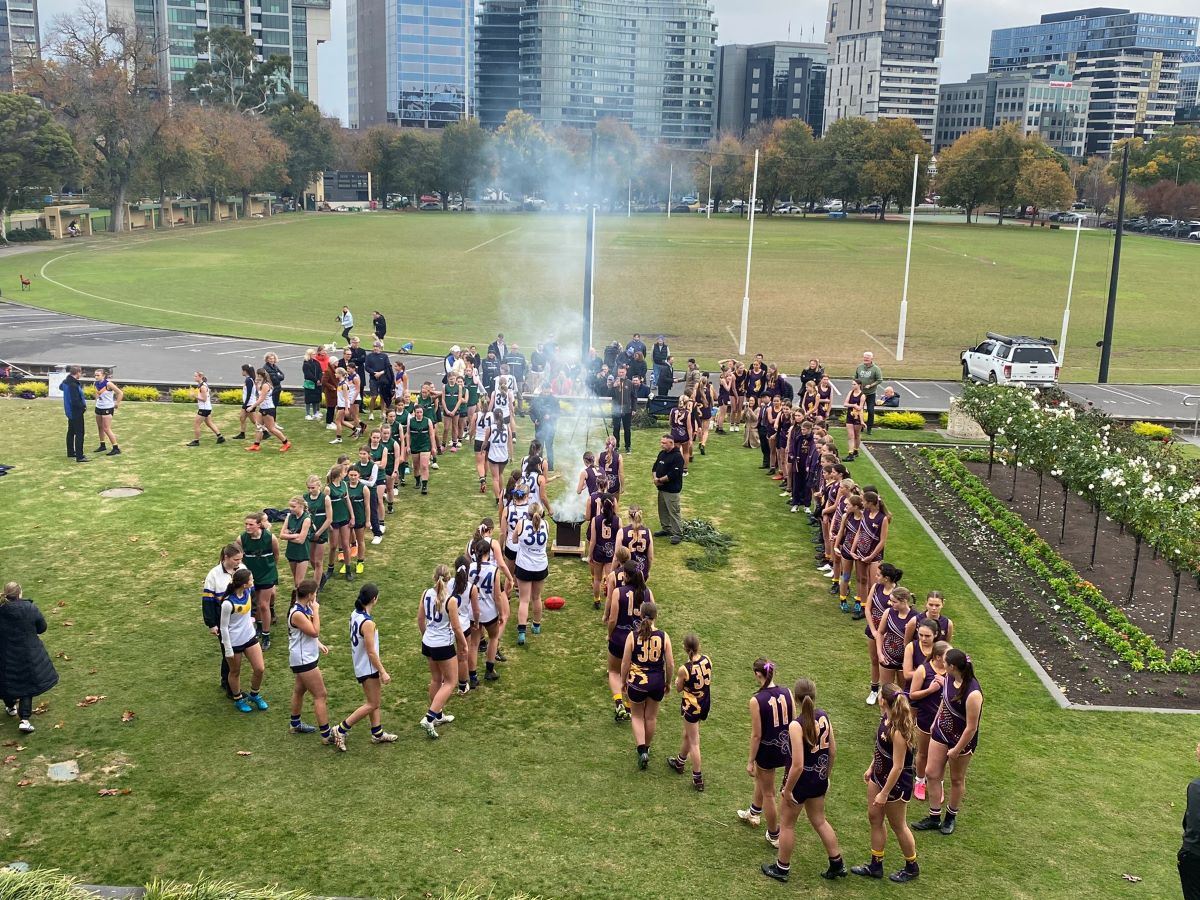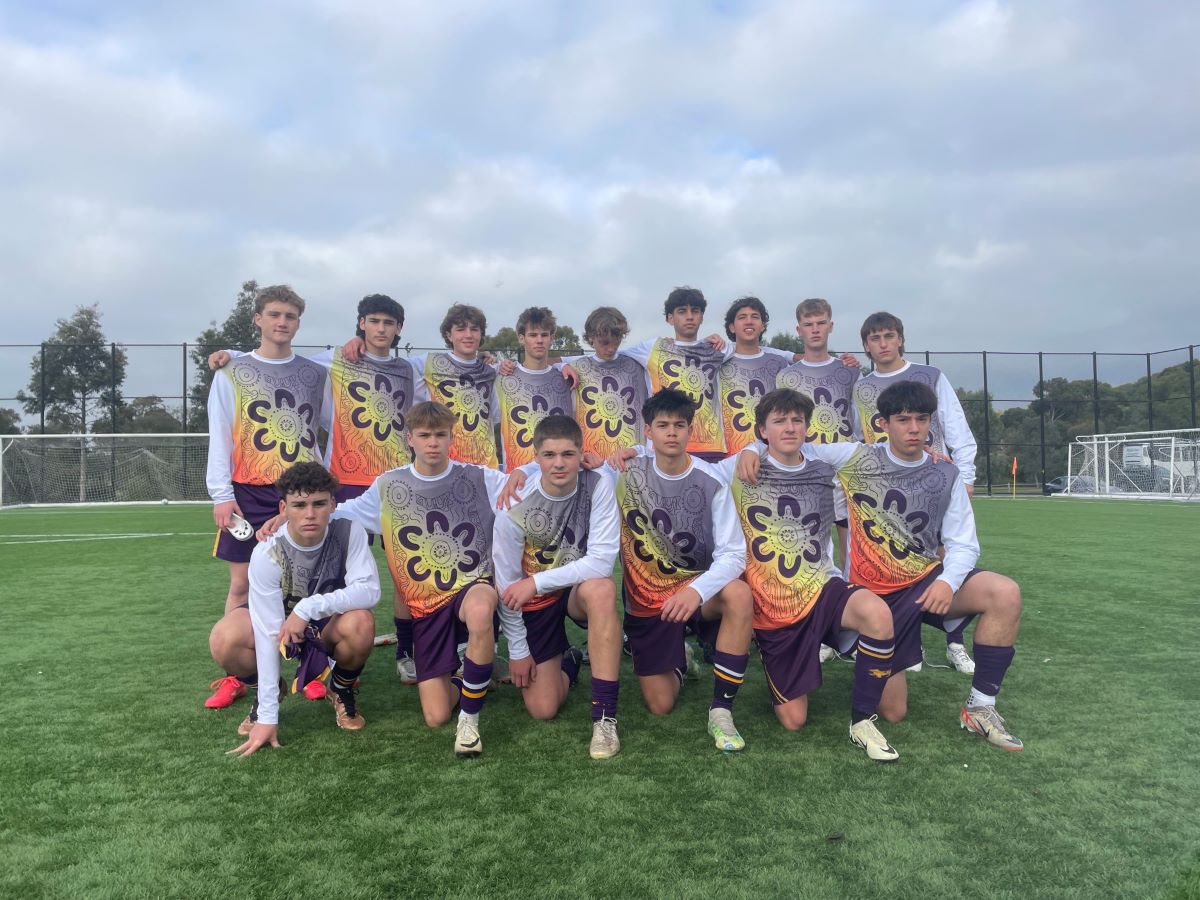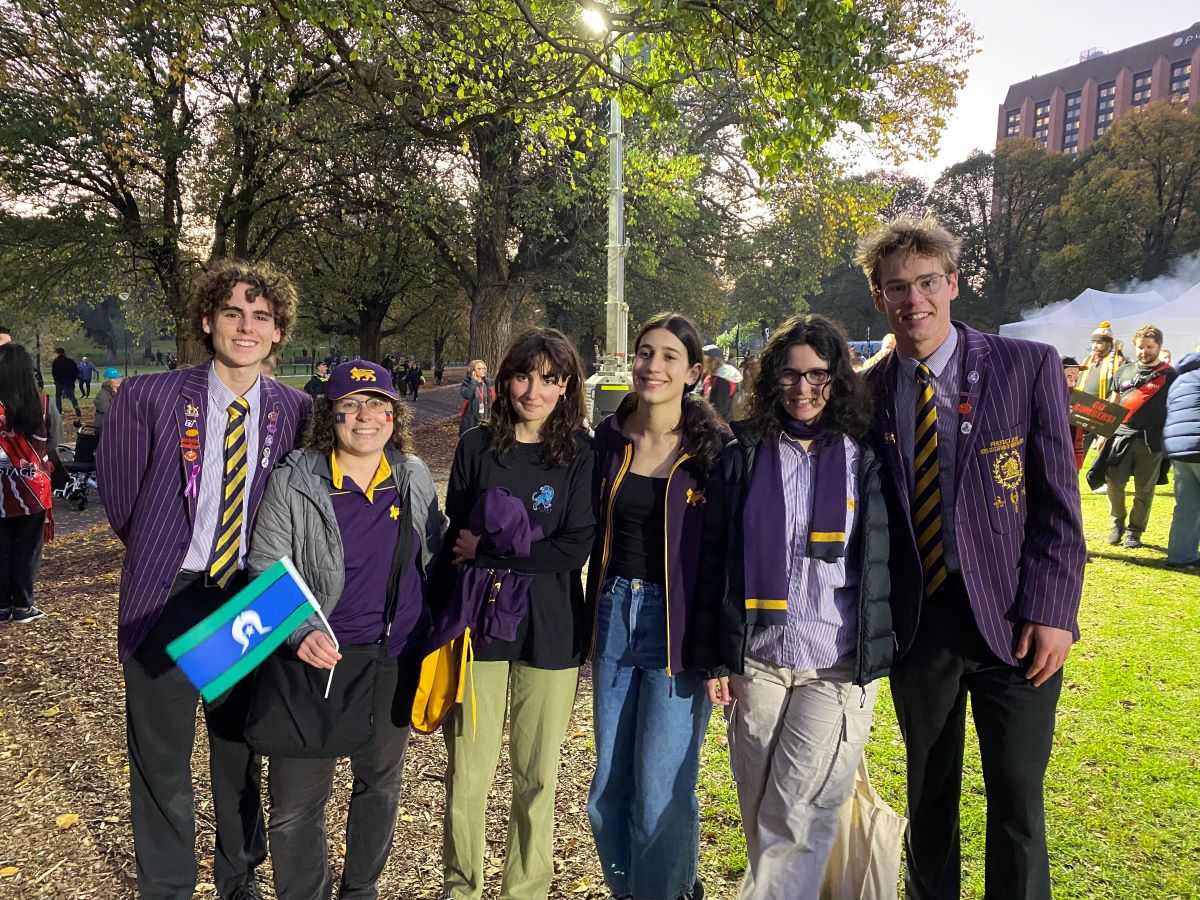
National Reconciliation Week (27 May to 3 June) is a time for all Australians to learn about our shared histories, cultures and achievements, and explore how each of us can help to achieve reconciliation in Australia.
‘Reconciliation Week gives us an opportunity to contemplate our role in reconciliation,’ said Amelie, Glen Waverley Campus Wesmob Prefect. ‘It’s a time for acknowledging the progress made and commemorating significant milestones in the reconciliation journey. Our goal is to set out our intentions for how we can continue to make a meaningful advance towards a reconciled Australia, and to further strengthen our relationship with Aboriginal and Torres Strait Islander peoples.'
Reconciliation Week is a significant week in the Wesley calendar. Our commitment to reconciliation is enshrined in our Reconciliation Action Plan, a formal but evolving statement of our quest for mutual respect, understanding and equality in a reconciled future, lived out in the actions of our staff and students.
To mark Reconciliation Week, there have been presentations and quizzes for students at the Glen Waverley and St Kilda Road Campuses and an assembly at Elsternwick Campus, led by Chaplain Peter Rivett and Willie Pepper, from the Boonwurrung Land and Sea Council. Later this term, Professor John Evans, Pro Vice-Chancellor of Indigenous Engagement at Swinburne University, will speak to students at the Glen Waverley Campus Middle School Reconciliation Assembly.
There has been weaving and bracelet-making, a collaborative artwork from Middle School students in the style of late Yorta Yorta, Gunditjmara and Barkindji man Josh Muir; a casual dress fundraiser for Children’s Ground; posters and artwork adorned with commitments students have made towards reconciliation; the screening of Adam Goodes’ film The Final Quarter; and staff have been contributing photos to a virtual art gallery.
On Saturday 25 May, students joined thousands of others and made the ‘Long Walk to the G’. On our playing fields, Wesley sports teams proudly sported training tops designed by Tonheya McCormack (OW2022). The unique design was inspired by a possum skin artwork and set of beads Tonheya created while a student at Wesley and featured the colours of the Aboriginal flag. The striking shirt design is reminiscent of sunrise and sunset in Central Australia. Visual elements of Tonheya’s work, including symbolic depictions of bush food, waterholes and women seated around a campsite, represent her responsibility to care for Country and to pass on her ancestors’ stories and culture.

Tonheya is from the Arrernte language group in the Northern Territory and has a keen interest in art. For her, reconciliation is ‘about how we all can come together, support one another and be one, regardless of our race. That’s what community means to me – being one and sharing loving energies with one another.’

This week, St Kilda Road Campus Wesmob Prefect, Lillian, encouraged all to listen. ‘As a country, we need to listen to truth-telling. It is only by listening, and doing the little things, that things can really change. I strongly believe that if we do what we can to support, learn and understand, Australia will become a better place. And nowhere is it more important to encourage this than in schools, because it’s children who are the future.’
St Kilda Road Campus Wesmob Coordinator, Rohan Chiu, reflects on the importance of continuing to respectfully listen to Aboriginal and Torres Strait Islander people, incorporating their perspectives into our curriculum to maintaining a culturally safe learning and employment environments for Aboriginal and Torres Strait Islander peoples.
The theme of National Reconciliation Week this year, ‘Now More Than Ever’ speaks to the urgency of unity, staying engaged and connected.
‘This year’s theme seeks to light the path for us again and calls for continuing education to call out racism and respect for Aboriginal and Torres Strait Islander voices,’ Rohan said.
‘Now More Than Ever’ is a reminder to all of us that no matter what, the fight for justice and the rights of Aboriginal and Torres Strait Islander people will – and must – continue.
